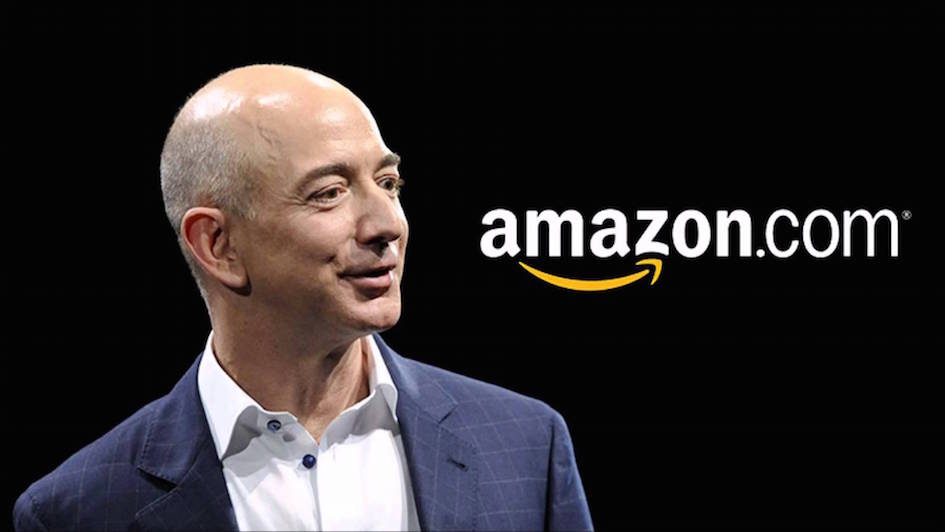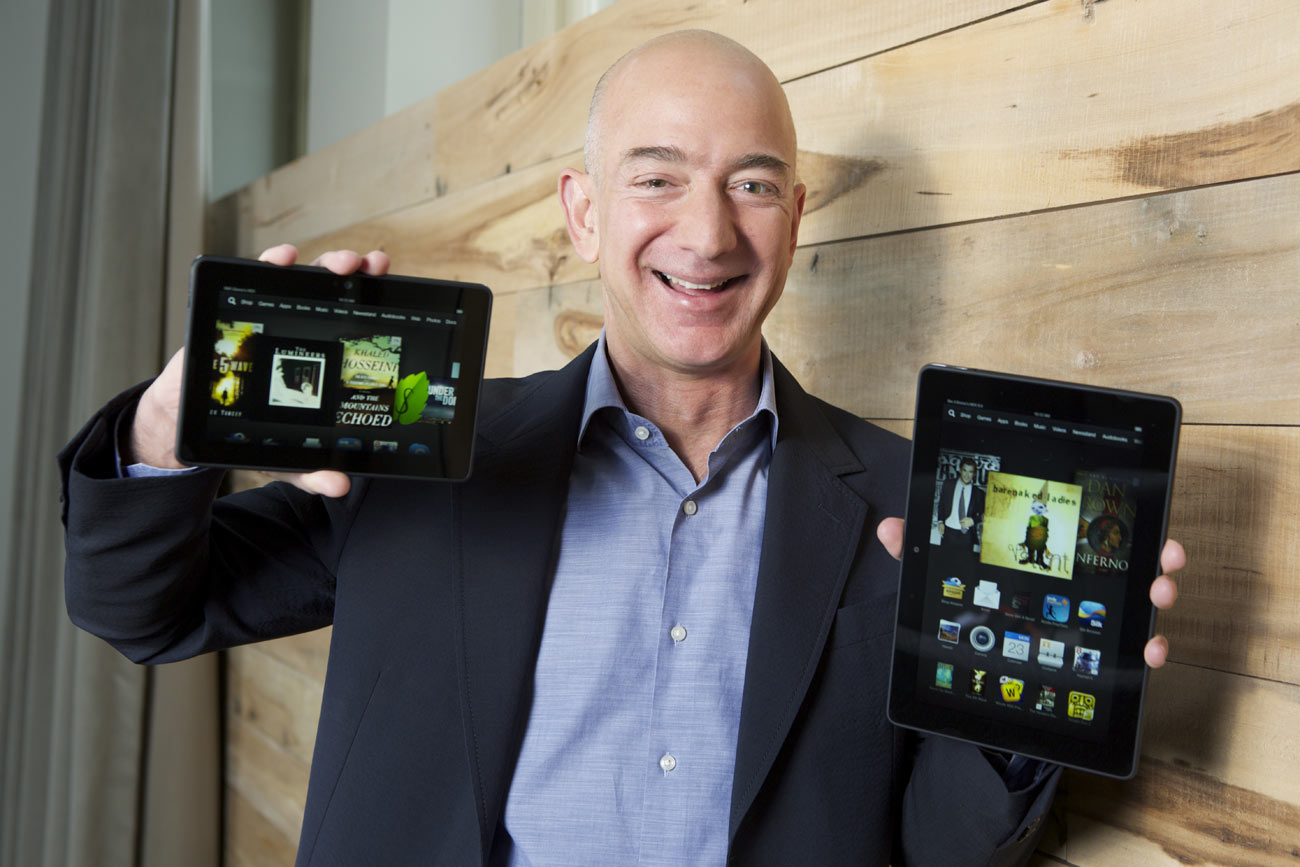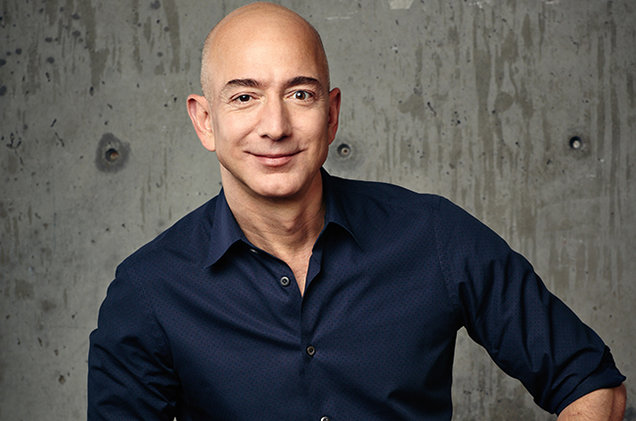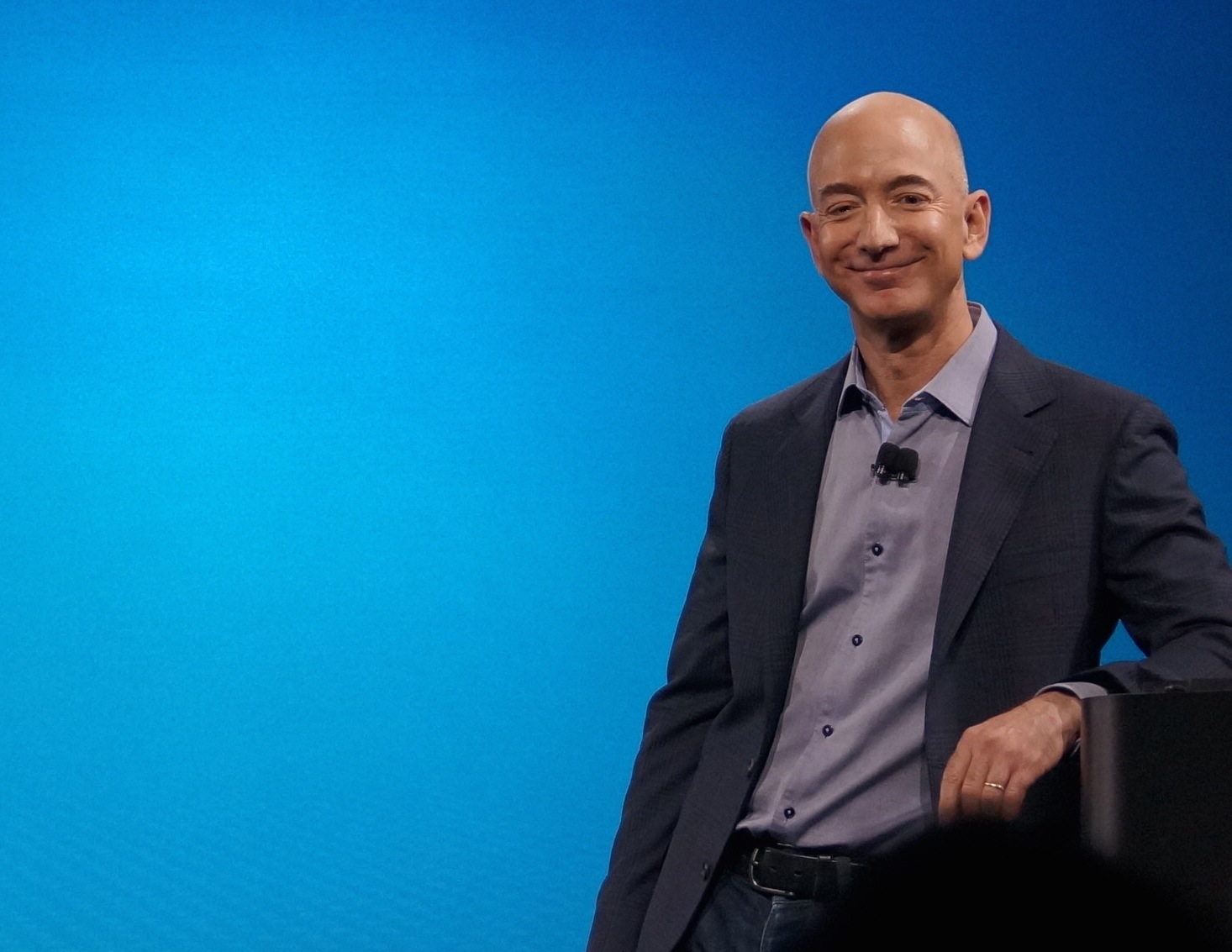5 successful business lessons from Amazon CEO - Jeff Bezos
Jeff Bezos - the owner of the Amazon online shopping site - the name rarely used by anyone without Internet access.
Jeff Bezos - one of the most famous billionaires on the planet was named among the 100 Best CEOs in the world voted by Harvard Business Review.
Officially joined the Internet world in 1995 and despite experiencing many painful failures (especially in the period after the dot.com bubble burst), Amazon still "survived" and constantly grew. Jeff Bezos's strong resilience, vision and spirit of never giving up. Many people called him the most eminent CEO in the United States, just behind Steve Jobs.
With Jeff Bezos:
When you have too many choices, you can be confused with small things.
I know that when I'm 80 years old, I will never think about why I gave up on Wall Street in 1994. That's something that won't worry you when you're in your 80s. At the same time, I know that I will regret it if I don't participate in an area called the Internet - which I think will be a revolutionary event in the future. When I think about things that way . it will be very easy to make a decision.

Here are 5 extremely valuable lessons that entrepreneurs need to learn from this talented CEO - a person who "would rather decide to try and fail with a startup than never try".
1. The philosophy of "empty chair"
In the early days of Amazon, Bezos always put an empty chair in every meeting. For all attendees, this is Amazon's "customer" and the empty chair is seen as a reminder that no decision they make is allowed to disrupt the most important "member". in a meeting.
From the start, Bezos was quite clear about his desire to turn Amazon into a "customer-obsessed" company. The customer-centric philosophy is what makes Amazon one of the world's leading e-commerce companies. Millenaire generation remember this, regardless of age, the belief of "customer is god" is always true.
Amazon's business is evaluated according to a list of 500 criteria and 805 of which are directly related to customers. Bezos is even more aggressive when it comes to things customers don't like. Everyone hates waiting, not liking faulty products or running out of stock, so Amazon constantly collects such information and seeks to minimize these troubles. Even, the company has researched that every time the website displays a delay of 0.1 seconds, it will cause the customers' operation to decrease by 1%.
For Bezos, innovation based on information gathered from customers is the most effective way. The Kindle product comes after Amazon understands the needs of its customers who need a compact reader that can download books within 60 seconds. Although they spent years studying and completing the Kindle, Bezos has not hesitated for a while. When a financial director asked how much he expected for the Kindle project, Bezos immediately replied: "How much money do we have?"
Customer service is best when customers don't need to call you, no need to talk to you. It only works according to its nature.
2. Sincere apologies do not hurt your "ego"
Back in 2009, Amazon once angered customers by erasing copies of George Orwell's book Farm Animal and 1984, even though they were registered to buy. The reason is that these two works were sold illegally by an anonymous seller. For other companies, this situation is considered a moderate crisis.

However, it was different with Bezos. Anything that hurts the customer is also hurting him. Therefore, he wrote a letter of apology with personal names to all users. He said, "Our solution to this problem is stupid, unthinking and contrary to the basic business principles of the company . From now on, we will be mature. more in every decision ".
For a startup, you might think admitting mistakes that lead to losing customers but in fact, refusing to do this will push customers away from you. In the example mentioned above, most companies will simply issue a press release apologizing for the mistake made. The worst components are hard to deny they make mistakes.
In any case, when errors occur, customers are the first to be upset. Obviously, Bezos's plea for sincere forgiveness has "recovered" them.
3. Rule 2 pizza
Jeff Bezos is a faithful believer of small things with limitless power. In his own mind, two pizzas are not enough for the whole group to eat, the meeting is too big, too many people attend. In fact, Bezos only encourages meetings when absolutely necessary.
Bezos believes that building too many team members will become inefficient, difficult to make decisions and also waste resources.
There is no doubt that this idea is being applied effectively by small businesses. For example, AMZInsight, this company often allocates jobs for small groups. Thus, the task is completed faster and everyone is free to express their views.

Also, during Amazon executive meetings, before discussing anything, the whole group - including Jeff Bezos, had to sit silently for 30 minutes to read 6-page reports."Such reading ensures the group will not be distracted and everyone understands the problem before discussing it. It is also a way to train thought and thoughtful thinking for management." , Bezos shared.
4. Long term is important
When spending money to buy more than 1 million books to serve customers, Bezos received a lot of criticism and this decision was considered reckless and foolish. More than 10 years later, when the investment began to be profitable, those criticisms turned into Bezos' success songs.
If a strategy or initiative seems to make a big change, Bezos is willing to ignore any objections to doing it. He could wait half a century to receive interest on his investment, but if he felt something was good, he was ready to do it immediately without hesitation. For example, when the ebook was first introduced, Amazon - at that time was a small store that applied a lower price than the printed version, which led to a loss in the short term. However, thanks to this venture, Amazon has now become a pioneer in online book sales.
The release of the Kindle Fire tablet, an upgrade of the Kindle reader, for just $ 199 in 2011 has once again affected Amazon's short-term profit. The price offered by Bezos does not seem to be enough to offset the cost of production research, but he still does not waver."If customers accept to buy Kindle Fire, that means Amazon has more opportunities to sell other products, the final value we get will be much greater ," he said.
If you believe something can be successful, then do it and don't worry too much about rewards in the short term.
A company's brand is like a person's reputation. You will gain fame by trying hard to do good things.
5. Failure is a need for improvement
As mentioned above, Amazon was formed when the Internet was "in its infancy" and online commerce began to grow but not really clear. Bezos is aware of all the failures that await me. At that time, he told investors: ". 70% of the chance you will lose the original amount, so don't invest unless you are able to withstand that loss."

However, instead of feeling trapped by the defeat ahead, Bezos felt stronger and more energetic at any time. He knew he would fail, but he also knew that nothing could stop him from making Amazon successful.
He felt free because he knew that the future was within reach and that strong faith became the driving force for him to achieve what he wanted.
After Amazon.com was born on July 16, 1995, with the first goal of selling books, what Bezos and his team focused on was improving the site itself, from functionality to quality. Not only that, Bezos also spent money to buy more than 1 million books to be ready to serve customers - a decision considered reckless and foolish! Bezos invested in both capital and effort to invest in Amazon, he was not afraid to launch dream offers, send free products, deliver home goods and ensure timely . It was too generous. That made Amazon, after more than eight years of establishment, not bringing in a single profit for its CEO.
Nearly a decade of losing business, Bezos must have become frustrated and discouraged? No, while his relatives and colleagues are worried, Bezos maintains a strong belief that he will succeed.
In 2003, Amazon's revenue increased to 34% (reaching more than $ 5 billion) and continued to skyrocket in the following years, quickly bringing investors into Amazon to become billionaires. Right now, as the name Amazon - the world's largest river - the site has reached the globe, occupying an irreplaceable position in the online retail business.
Strategic vision is almost always CEO, not least, but not sure that everyone dared to "risk" to the end and be as determined as Jeff Bezos
Expect failure but don't let it interfere with your plan. Instead, be prepared to face.
You should read it
- ★ Founder of Acqueline Whitmore: 'Things that hinder an entrepreneur from reaching success'
- ★ What does Amazon boss spend 8 hours a day doing?
- ★ 15 interesting facts you may not know about Amazon
- ★ State AGs tell Amazon to boost paid sick leave during coronavirus crisis
- ★ Amazon boss deployed delivery service to compete with UPS and FedEx